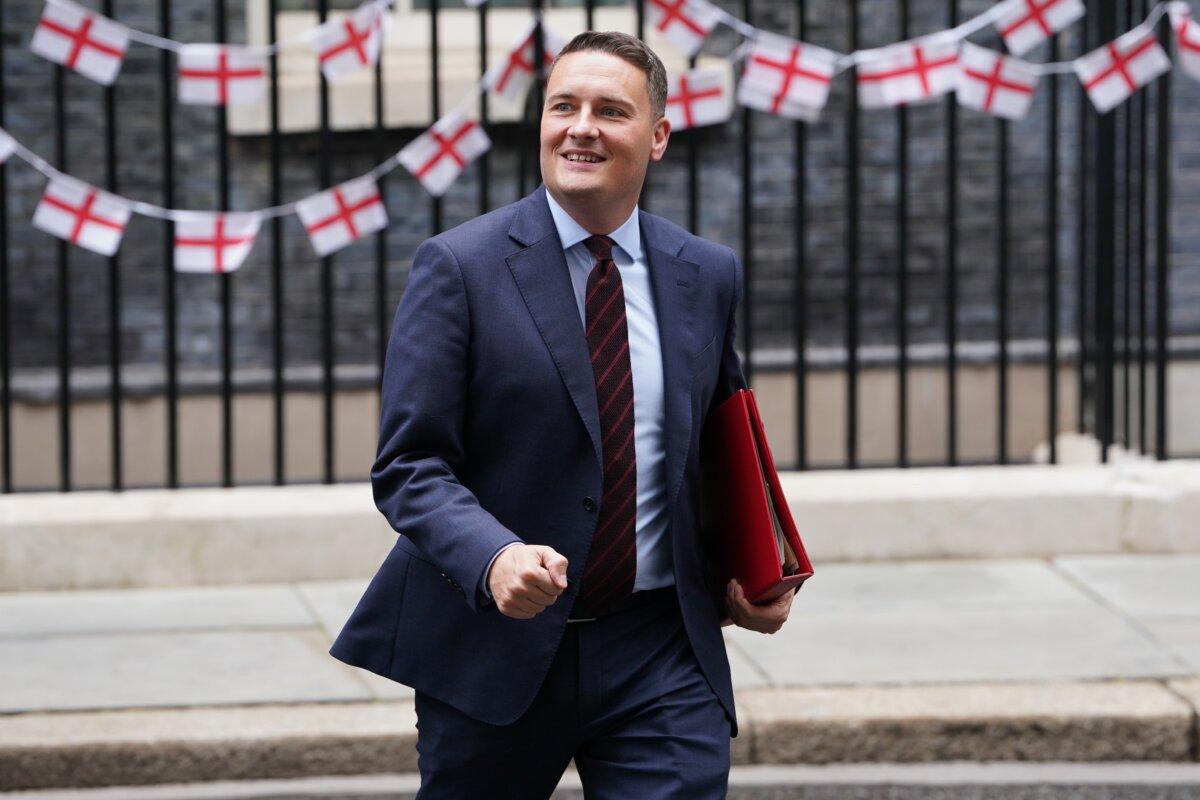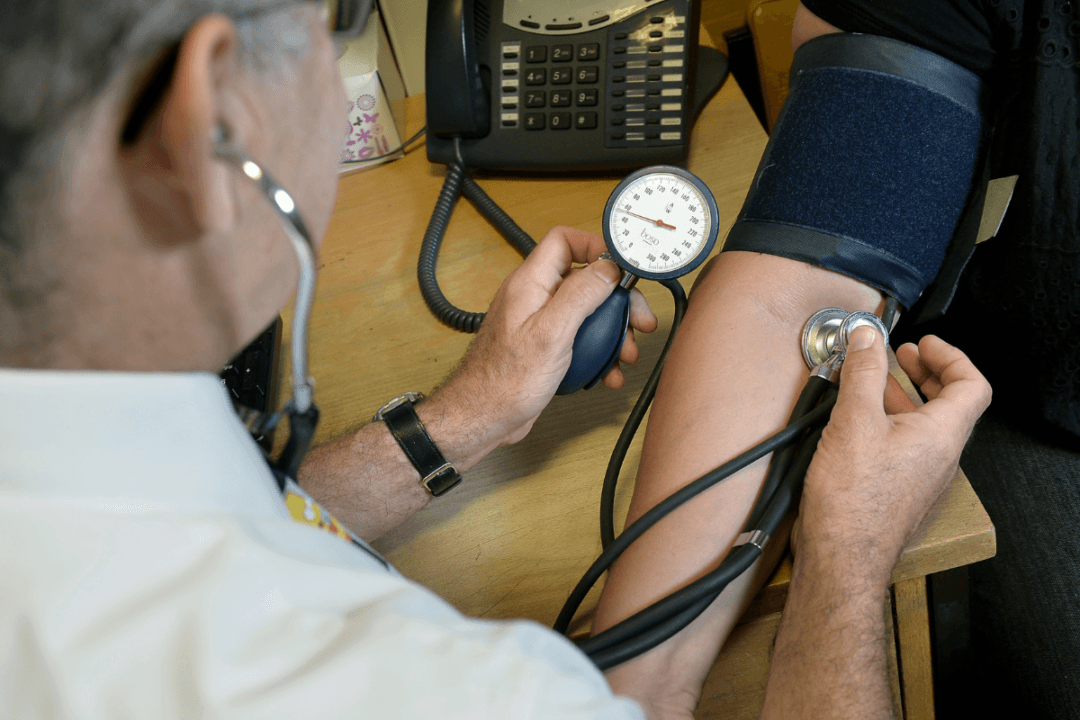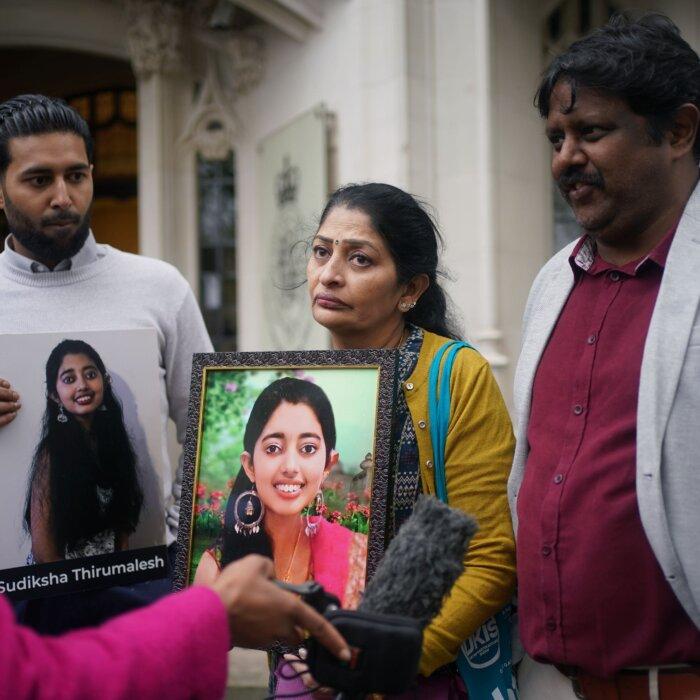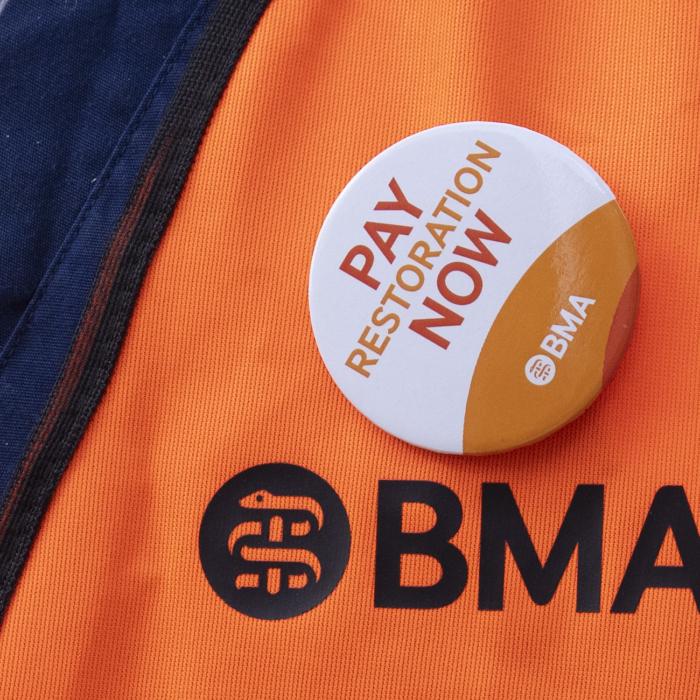GPs in England have voted overwhelmingly in favour of industrial action amid disagreement over a new contract for family doctor services.
The British Medical Association (BMA) announced on Thursday that 98.3 percent of the 8,518 GPs who cast their ballot voted to undertake collective action starting Aug. 1.
The action does not include closing surgeries and practices will still be required to be open between 8 a.m. and 6:30 p.m., Monday to Friday.
Instead, the BMA has encouraged practices to choose from 10 collective actions, such as limiting the number of patient contacts for GPs to the recommended maximum of 25, referring patients directly to specialists rather than following NHS protocols, and refusing to share patient data unless it is deemed in the patient’s best interest.
The association did not specify how long the industrial action would last, but suggested it could be long term, with guidance saying: “You may decide to add to your choices over the days, weeks, and months ahead. This is a marathon, not a sprint.”
Family doctors agreed to strike over the new GP contract, which proposed giving services a 1.9 percent funding increase in 2024/25. The BMA said the increase was inadequate, and accepting that amount could mean many surgeries would still struggle to stay viable.
Dr. Katie Bramall-Stainer, chairwoman of the BMA’s GP committee, said that the era of the family doctor “has been wiped out by recent consecutive Governments and our patients are suffering as a result.”
“Practices are now struggling to keep the lights on, can’t afford to hire much needed GPs and other staff, and some have been closed for good,” Bramall-Stainer said.
Action ‘Will Hit Patients Hard’
NHS England told patients to continue to come forward for care as usual during this collective action, but recommended patients call 111 for urgent medical help when their GP is unavailable and 999 in cases of life-threatening medical emergencies.The BMA said in its guidance to GPs that the collective action will still ensure the delivery of a safe service. However, the health and care think tank The King’s Fund has warned that the action by GPs “will hit patients hard.”
Alex Baylis, co-director of policy at The King’s Fund, said: “GP practices are the front door to the NHS so collective action by GPs will hit patients hard, and the impact will reverberate right across the whole health and care system.
“The latest data shows that GP practices delivered 28.6 million appointments in June, which is nearly five million more appointments compared to the same month in 2019.
Over 1,000 New GPs to Be Hired
The news of industrial action comes after the government announced it would be cutting regulations to allow practices to spend their staff funding pot on hiring new GPs.The Department of Health and Social Care (DHSC) announced on Thursday that the Additional Roles Reimbursement Scheme (ARRS) could be used to recruit newly-qualified GPs in emergency measures for 2024/25. The £1.4 billion fund was designed to boost staff in GP practices, but until recently could not be used for funding GPs or practice nurses.
The DHSC said it will enable practices to hire more than 1,000 newly qualified GPs.

The government also accepted recommendations for the Pay Review Bodies in full, meaning GPs’ salaries would be increased by 6 percent.
Junior Doctors Strike
The industrial action by GPs follows strikes by junior doctors that concluded last month. The five-day full walk-out took place between June 27 and July 2, and was the 11th round of strikes by the union members.The action was as a result of a long-running pay dispute with the previous government. The BMA had asked for a 35 percent pay rise in line with inflation increases. In the last financial year, junior doctors received a nearly 9 percent pay rise.
The new Labour government began negotiations with the junior medics late last month, with the new offer worth 22.3 percent on average over two years.
In response, Deputy Chairwoman of the BMA Council Dr. Emma Runswick said the offer was a “good step” but may not be enough to resolve all issues faced by the profession.







